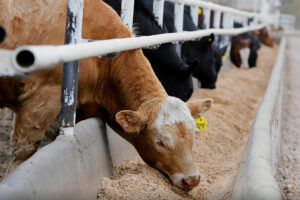Soy imports expected to increase on growing PHL demand for animal feed

THE Philippines is expected to import more soybeans this year due to increased demand from the livestock, poultry, and aquaculture industries, the US Department of Agriculture (USDA) said.
According to a report by the USDA’s Foreign Agricultural Service, soybean meal imports for the feed industry are expected to grow 4% to 3.2 million metric tons (MT) in the marketing year 2024-2025.
The Philippines imports most of its soy to meet domestic demand, especially for animal feed.
Due to the limited land set aside for production, mostly in the Caraga and Ilocos Regions, the local harvest may likely be unchanged at 1,000 MT.
“The United States is the preferred source with an 85% market share. About 15-40% of the feed ration of animal and aquaculture feeds is soybean meal,” it said.
It added that imports of soybean meal will help offset the 16% decline in copra meal production, mainly due to the ongoing effects of El Niño on coconut production.
Copra meal is a by-product of the coconut oil extraction process.
The government weather service, known as PAGASA, has said that El Niño is starting to weaken, though its effects may last until August.
“The El Niño weather disturbance will affect coconut production… Copra crushing will decline by 15%, which will also result in a 15% reduction in coconut oil supply,” the report said.
It added that exports of coconut oil are estimated to decline to 900,000 MT.
Citing the Philippine Coconut Authority, it said that El Niño is not showing significant effects as of March. Its effect is expected to manifest 13 months after the conclusion of the weather phenomenon.
The USDA said that El Niño’s effects on copra supply for milling will be seen in areas that have been affected by drought or dry spells.
“Coconut areas affected by dry conditions, dry spells, and drought will report low coconut production, which will affect the coconut supply to oil mills located in these areas,” it added. — Adrian H. Halili




